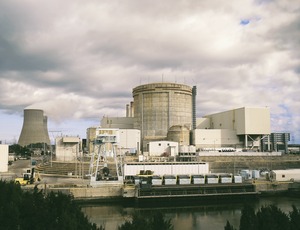As officials in North Carolina prepare to widen their probe into utility Duke Energy’s surprise ouster of its just-named CEO, officials there and in Florida are giving increased scrutiny to a problem-laden repair of the now-idled Crystal River nuclear powerplant owned by acquired utility Progress Energy as a factor in the boardroom coup.

Charlotte-based Duke—now the nation’s largest electric utility—drew the ire of state regulators when its board forced out William D. Johnson as CEO less than 24 hours after closing the deal for Progress Energy, which would create a $32-billion entity. Both companies had testified to the North Carolina Utilities Commission that Johnson, who had been CEO of Progress Energy, would serve as chief of the new company.
The panel approved the merger on July 2 based partly on those assurances that Johnson would lead the new entity. One day after the merger's approval, however, Duke announced that Chairman and CEO James E. Rogers, who was set to become executive chairman of the new entity, would retain all titles.
In a July 10 appearance before the commission, Rogers said that Duke board members had started discussing Johnson’s dismissal as early as May. He cited concerns over whether Johnson had fully communicated the problems at the Crystal River nuclear plant in Citrus County, Fla. The 914-MW plant has been idle since 2009, when Progress Energy began a project to replace its steam generators. Rather than hiring a construction manager, Progress Energy chose to self-manage the project to save money (ENR 1/30 p. 14).
Originally estimated to cost $81 million, the project involved cutting a 27-ft by 25-ft hole in the plant’s post-tensioned, prestressed, 42-in.-thick containment dome in order to remove and replace the generator. The building then developed cracks in the containment building, requiring repairs that Progress Energy reported could cost between $900 million and $1.3 billion. Progress hired Chicago-based engineer Sargent & Lundy to analyze the proposed repairs.
In 2011, when Progress Energy sought approval to charge customers for the cost of repairs and replacement energy, Florida’s Office of Special Counsel investigated whether the utility had been negligent in handling the work. But in January 2012, the parties reached an agreement that allowed Progress Energy to start the $1-billion repair on the condition that it refund about $288 million to customers.
In his testimony, Rogers stated that Duke’s board had initiated its own analysis of Crystal River, which further boosted board concern. David Scanzoni, a Duke Energy spokesman, would say only that the utility hired “outside experts” to assess the engineering and other issues related to Crystal River. He would not identify them. Duke also would not say whether previous repair estimates were still accurate in light of the new study.
The Florida utility’s negotiations with insurer Nuclear Electric Insurance Ltd. over repair claims also frustrated the board. Rogers testified that Duke “had been led to believe” that Progress was close to a resolution with the insurer. But the utility discovered the insurer continues to have “growing concern about … the future of that plant,” he said. Negotiations with the insurer are ongoing.
Florida officials requested a copy of Duke’s study to determine whether Progress Energy had provided truthful information about Crystal River. Cindy Muir, a spokeswoman for the Florida Public Service Commission, said Duke told the agency the study had not been finalized. Duke’s Scanzoni originally told ENR that the study was complete, but clarified later that it is still ongoing. In a statement, Scanzoni further clarified, "Duke Energy has made no decision yet about the public release of the report."
On July 17, the Florida PSC called Duke Energy's Rogers to testify on August 13 to address the affect of the merger on Florida consumers.
On July 12, the North Carolina commission ordered Johnson to testify on July 19. ENR could not reach Johnson for comment, but the ousted CEO’s attorney, Wade Smith, said in a published report his client would tell the “exact truth” to the commission.



Post a comment to this article
Report Abusive Comment